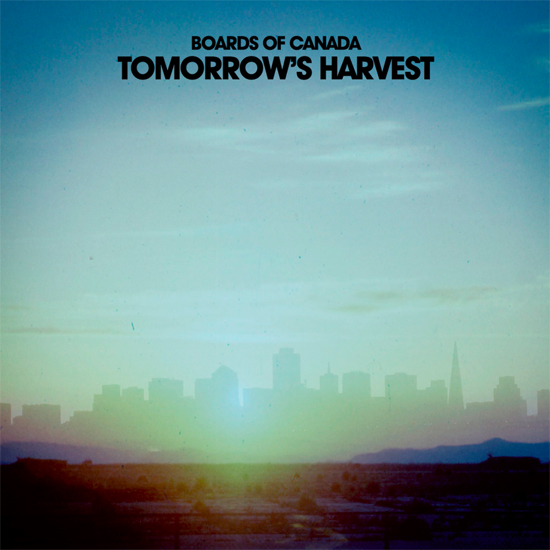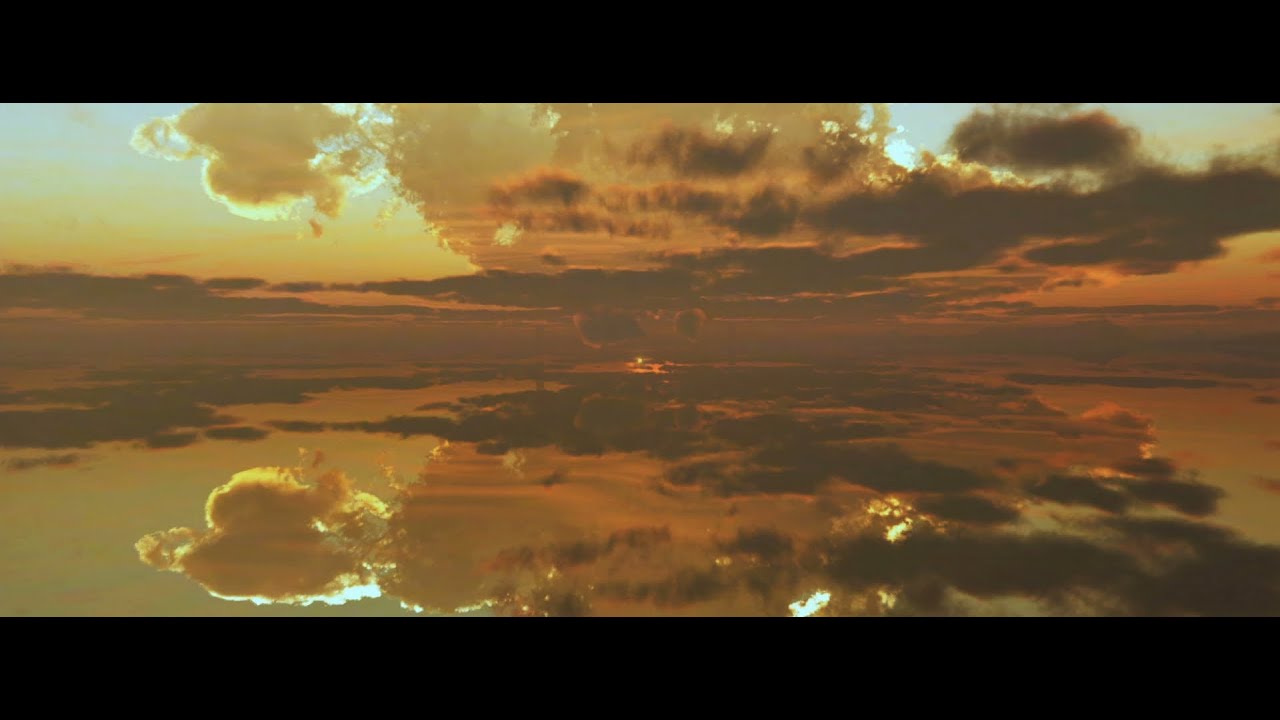After all the intrigue, hidden codes on 12" records that went on to sell for astronomical amounts of money on eBay, adverts on Cartoon Network, a song played at a Tokyo intersection, and other covert shenanigans that made the Daft Punk teaser campaign look prosaic, here I am, in the WARP offices in North West London, signing a disclaimer ahead of an exclusive listen to the new Boards Of Canada album, Tomorrow’s Harvest. It’s a fitting way to listen to a record by a band whose obsessive fans are something of a cult, and one so devoted that they would drink poisoned Kool-Aid if Marcus or Mike Sandison (the brothers BOC) said it tasted good. Once we leave the confines of WARP HQ, we’re not allowed to talk about it. Not even to our nearest and dearest. We can’t even say we were here. The first rule of BOC Album Playback Club is you don’t talk about BOC Album Playback Club – until the embargo is lifted.
Covert listening "parties" (there’s beer and other journalists present) like this are normally reserved for massive artists on major record labels – Boards of Canada aren’t (neither is WARP), though they have always kept a level of clandestine secrecy over their activities for the duration of their career. They didn’t even admit that they were brothers for the first few years of their existence and rarely talked to the press, until breaking cover in 2005 to dispel some of the many ridiculous myths circulating about them and their music.
But casting aside all the background noise for a minute there is only one (very important) thought on my mind: is it any good? Immediate reaction? Yes. It’ll definitely recapture the interest of anyone who felt that The Campfire Headphase was a bit lightweight. It’s pitched somewhere between the mellow pastoralism and childlike nostalgia of Music Has The Right To Children and the denser, more complex song structures of Geogaddi. They’ve not gone dubstep and it certainly isn’t EDM. It’s resolutely BOC, but their trademark sound has evolved. They’re giving all the analogue synth jockeys like Oneohtrix Point Never and Emeralds a run for their money with some epic, layered work-outs dripping in their trademark cloying melodies, but also heavy in drones and some of their best drum programming yet.
On first listen, it’s their darkest, most dystopian record, sonically cluttered and a million miles away from the sentimental reverie of MHTRTC, though there are still some on-going themes that link their fourth album to their first (public) release. Thematically (according to the fanboys) some of the inspiration for the album comes from Deadly Harvest, an obscure, low-budget 1977 Canadian film that was ahead of the curve in warning of the dangers of climate change, dealing with massive crop failures in North America and the destruction of social order as a result. This idea seems to be reflected by the song titles (‘Cold Earth’, ‘Sick Times’, ‘New Seeds’), the album sleeve and the overall mood of the record. There are plenty of garbled, unintelligible vocal samples to drive the hardcore fans mad trying to decipher where they’re from and what they mean.
Only being allowed one listen to a record makes a kneejerk reaction inevitable, but my initial impression is that this will become the serious Boards of Canada fan’s favourite album, but anybody who came in at The Campfire Headphase will probably be opting out. It’s an intense, weird, beguiling and deeply complex record and I can’t wait to hear it again.
Track By Track
‘Gemini’
A fanfare of trumpets and we’re off… The first noise you hear is eerie dissonance, which is promising. There’s the faint sound of wind whistling in the background, evoking images of icy tundras. The mood is a bit unsettling. Panning synths in the style of Oneohtrix Point Never unfurl, along with something resembling vast synthesised panpipes. It’s beatless. There are vague hints of trademark BOCian melodies penetrating the synthy murk. It’s a wee bit Goblin/Umberto perhaps, and wouldn’t sound out of place on the soundtrack to a Dario Argento flick.
‘Reach For The Dead’
The one you’ve all heard:
‘White Cyclosa’
Another beatless drone-piece, with arpeggiated synths and a subtle melody. It sounds retro-futurist as only BOC can – the perfect marriage between the warmth of analogue and the stark clarity of digital; a theme that is repeated throughout the album. As it evolves it gets darker, reminiscent of John Carpenter. It’s pretty spooky.
‘Jacquard Causeway’
Anyone who got into BOC because they quite liked the mellow vibes of ‘Davyan Cowboy’ is going to run screaming for the hills after hearing ‘Jacquard Causeway’. It opens with a classic BOC woozy, tape-distorted melody, backed by rumbling bottom-end and a stark rim-shot snare drum. Sounds are piled on top of each other, all to an ominous backbeat, until the sonic clutter becomes quite overwhelming. It’s intense, repetitive and disorientating. A luminous swell of synths finally washes over the track after about six minutes of that relentless racket. Definitely the most extreme thing BOC have ever committed to tape.
‘Telepath’
A garbled, time-stretched vocal that sounds a bit like Vincent Price on ‘Thriller’ counts up to ten over warm drones. He’s saying something that sounds a bit like, "No this is quite close", and other stuff that is hard to decipher.
‘Cold Earth’
There’s an opening salvo of soaring choral melodies and pulsing bass, backed by skittering rhythms, before a complex, Eastern-influenced melody weaves in and out of some tough, electro beats. There are some strange, distended vocal yelps. This is classic BOC, the first song that is really recognisable as being by them. It’s pitched somewhere between Geogaddi and Music Has The Right To Children. It’s basically everything that is great about BOC, but it sounds fresh and vital. They’re looking back to take their sound forwards.
‘Transmisiones Ferox’
Sounds a bit like The Orb circa-Ultraworld, with a throbbing bass pulse and a noise that could be described as being like a spaceship blasting off. Buried in the mix are scrambled radio frequencies, sonic dissonance and unintelligible female vocal samples.
‘Sick Times’
An imposing chord sequence and whooshing synths announce the arrival of the dopest beat yet – a seriously funky, chopped-up hip-hop break. There are trace elements of looped vocals and gorgeously woozy melodies. This is like a souped-up ‘Telephasic Workshop’. There’s a long fade with rumbling bass that makes the speakers tremble.
‘Collapse’
The spooked out vibes continue. Behind a wall of undulating synths there are fragments of what could be alien transmissions. It feels like something is trying to reach out from the other side. Think the scenes in Poltergeist where the demons in the telly are trying to snatch poor little Carol Anne.
‘Palace Posy’
An instant classic and the most playful track on the album, featuring a juddering slo-mo beat, a bouncy, pinging bass line and warm chords with the occasional flourish of classical strings. It sounds a bit like Aphex Twin’s ‘Cow Cud Is A Twin’ or something else from the album, I Care Because You Do. It almost has a standard vocal, albeit one generated by a radio tuned into a station playing the chorus of a totally different song.
‘Split Your Infinites’
This is deep. It sounds a bit like the sci-fi-flecked techno of ‘Bitstream’. It’s almost industrial. Perhaps they’ve been listening to Andy Stott. It is very creepy, with more voices from the other side.
‘Uritual’
This is a short instrumental piece that drones like a buzzing fly trapped in a jam jar – or maybe a synthesised didgeridoo.
‘Nothing Is Real’
Hey, it’s ‘Roygbiv’ Part II. Well, a sharper, less gauzy take on the MHTRTC classic. Like everything on Tomorrow’s Harvest, it is not as accessible or friendly as their previous work, but it is definitely from the same gene-pool.
‘Sundown’
As the title suggests, this is a comedown tune, with emotive, ambient synths. But there is something vaguely disquieting about it. It’s a piece of music to soundtrack the death of a star, not for chilling at the Café Del Mar.
‘New Seeds’
A symphony of mobile phone interference (or some equivalent digital noise) is looped into a rhythm with a low-slung bassline and slo-mo beats. It’s brilliant, and it swells into something epic, with gorgeous interweaving melodies and drones.
‘Come to Dust’
Fatigue was starting to set in now. It is a long album – more than an hour of dense, complex electronic music. It is a varied album, but there is still a limited vocabulary available to describe it. This one has a thudding beat. It’s quite cosmic, actually – cosmic techno.
‘Semena Mertvykh’
All I wrote for this one was: "Drone. Heavy. Aeroplane over my house." And I’m afraid I can’t really remember what it sounded like. I can tell you that the title translates as "Seeds of the Dead" in Russian.
Tomorrow’s Harvest is released by Warp Records on June 10




